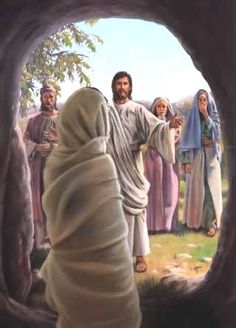The Grace Wilderness
Leadership is broken because leaders are unbroken
Wilderness Wanderings Series:
Learning to Live the Zigzag Life
A Majority of One Among a Minority of the Many
Some men are a wilderness in themselves. Full of anger and hatred, they lash out at others like a fire-breathing dragon, setting the entire landscape aflame. Saul of Tarsus was one such man…
Apparently a small man based on his comments about himself, he made up for his size with a brilliant mind. Saul grew up in a devout Jewish family among the Gentiles in Tarsus, then part of Syria in the Roman Empire (now modern day Turkey). It appears that his growing up years taught him to stand up for his convictions and hold his own as a majority of one, turning all others into a minority of the many.
Educated in the greatest theological institution of his day, the school of Gamaliel in Jerusalem, he graduated #1 in his class, the brightest of the bright, highly dedicated and disciplined in his pursuit of truth. His achievements gave him great confidence in his knowledge as well as in his heritage, and his zeal inflamed him for the truth of the Old Testament and the coming of the Messiah.
Saul knew the truth, and he knew that no crucified carpenter could possibly be the Promised One who would be like Moses. The idea that Jesus of Nazareth could be the long-promised Messiah offended Saul right to the depths of his soul and turned him into a fire-breathing persecutor.
Not satisfied with the damage he did in Jerusalem when he instigated and participated in the stoning of Stephen, he set out for Damascus as the authorized agent of death for all who professed the name of Jesus.
His aim? To turn every assembly of believers into a burned-out wilderness of persecution and destruction. The Christians knew this and awaited his arrival with fear and trembling. What could they do?
Certainly those in Damascus heard he was coming and sought to avoid him at all costs. Maybe they could ride it out somehow. Maybe God would hear their prayers for protection in some miraculous way. Little did they know the miracle that awaited both Saul and them.
Saul, Saul, Why are You Persecuting Me?
On the way to Damascus Jesus met Saul and called him to account for the persecution he was pursuing, and the fires of conviction burned out the fires of unbelief in Saul. When Saul became a believer he was too hot to handle, either by the Jews or the Christians in Damascus.
One of the first things he did was to alienate the Jews who expected him to lead them in killing the Christians. He was still the fire-breathing dragon Saul and not yet the loving Paul. He breathed his attack on the Jews of Damascus, setting them aflame with a passionate desire to destroy him.
The Christians, not really sure of Saul, would also feel better with him out of Damascus for both his good and theirs. So, in the darkness of night, his followers stuffed him into a basket and lowered him over the city wall. Sometimes it pays to be small.
The Hot sands of the Wilderness
But what could Saul do now? Forced to flee Damascus, he couldn’t stay in Jerusalem, aflame as it was with the very spiritual fires of persecution he had ignited.
So he did the only thing he could do: first go to Tarsus and then disappear in self-imposed exile on the burning sands of the Judean wilderness for the next three years. After his time in the Arabian wilderness, Paul passed through Jerusalem for a short visit before heading north to his hometown, where he remained for the next ten years.
Something happened to Saul in that wilderness season; gradually he was transformed into the man who later became Paul through an encounter with the grace of God. Saul entered the grace wilderness, and God’s grace delivered him from self-righteous legalism to the surpassing greatness of knowing Christ.
Virtually every Christian leader has to traverse the grace wilderness in our passage from confidence in the flesh to confidence in Christ. The problem with many of us is that we can articulate confidence in Christ long before we can live it, so we think we know the reality of grace when all we have is the empty garments of right words.
Until we’ve entered into the isolation of inadequacy, struggled to escape from it through our own strength, and experienced the depth of failure this brings us, we cannot grasp the fullness of God’s grace.
The GRACE Wilderness
It’s rightfully called the grace wilderness, not because grace is a wilderness, but because grace is the water that irrigates our deserts and brings forth the bounty of blessing that we long to experience in our lives. Grace means fruitfulness in the Holy Spirit and only the barrenness of confidence in the flesh can prepare us for the bounty of the Spirit’s blessing.
Writing as Paul, under house arrest in the city of Rome, to the believers in Philippi where he had been incarcerated many years earlier, he contrasts his past and his present, his old confidence and his new confidence. His old confidence rested in human achievements, such as his family heritage, his ancient roots in Israel, his affiliation with the theological elite, his passion to stand for God’s truth by stamping out Christianity, his faultless self-righteousness—all of the things he counted on for a sense of identity.
This is what made Saul Saul. This is what ignited the flames of hatred and destruction in him and drove him to Damascus. Now he has a different drive because he has a new set of values and because he has become a new man.
All of the virtues that gave Saul his identity are now of no value to him, they are refuse to be washed away as the waste of life. Grace has given him a whole new identity, a new way of defining value, a new passion that has truly turned him into a majority of one among a minority of many.
Nothing else matters except that he knows Christ and that he continues to grow in that knowledge no matter what he faces. He can endure unjust arrest, unfair imprisonment, distressing jealousy, even gnawing hunger as long as he moves deeper into knowing Christ.
He runs life’s race with one aim in view: to obtain the price of God’s high calling for him. This is the fruit of the wilderness of grace.
Forgotten by God?
It was Barnabas who brought Saul out of the grace wilderness and into the limelight and who played a role in transforming him into Paul. But it was God who remembered Saul in the wilderness, even as He remembered Moses and David and promoted them into fruitful leadership.
There are times when we leaders feel forgotten by God, as if He lost our phone number, discarded our e-mail address, and forgot to put us in the game, but He hasn’t forgotten us. In the distance and silence of the grace wilderness, God is preparing us by radically changing what matters most to us.
We no longer seek approval through our accomplishments, our associations, or any other human measurement. We draw our identity exclusively from Christ, and our only concern is are we advancing His cause by pursuing His purpose for us?
So the question we now face is have we been to the grace wilderness? This may be the most painful wilderness we ever enter because grace forces us to look into ourselves, to see ourselves as we never wanted to, to stare fully into the mirror of pride and competition, of personal ambition and self-advancement, to take off the blindfold of denial and see our sin as the holy God sees it.
There are times in the grace wilderness when we will wonder where God is, if He’s done with us and hasn’t yet told us because He’s leaving it up to us to figure it all out. I have been there and thought God was done with me, that He had fired me because I would fire me for failing as miserably as I had.
What I discovered stunned me. While the grace wilderness feels like the end of our opportunity to serve God, it’s actually the beginning. He may implode all we have done, but He plans to replace our self-produced effort with a greater edifice built by His grace.
No wilderness is as difficult as the grace wilderness, but no wilderness is as fruitful as the grace wilderness. If you don’t believe me, just look at Saul who became Paul. His change of name meant a change of identity, and that is what we are driven to obtain.
Virtually all leaders are seeking an identity transplant, striving to become someone through our success. Through grace we gain the identity Christ has for us, and we become the leaders He created us to be. If you are struggling with who you are, if you can’t find God or figure out what He’s doing, if your fruit has dried up and you wonder if God has turned His back on you, you may be in the grace wilderness.
Take a chance that you are and tell God you give up. It’s no more you, only Him, no more self-confidence, only grace-confidence. If there’s rubble to be cleared away, let God clear it away. Then begin anew to bear the fruit that comes out of the grace wilderness. Let God’s grace water your barren life.
From "The Grace Wilderness" on www.leaderformation.org/blog
 About: The Broken Leadership Blog is about changing the leadership conversation from what we are doing with our hands to what God is doing through our hearts.
About: The Broken Leadership Blog is about changing the leadership conversation from what we are doing with our hands to what God is doing through our hearts.





